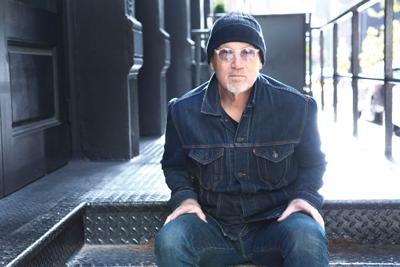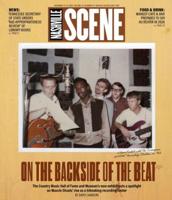
Marshall Crenshaw
“To be scrutinized and characterized was a weird thing,” Marshall Crenshaw tells me via phone from his home near New York City. He’s talking about his days in New York in the early 1980s as an up-and-coming pop-rocker. “It really threw me for a loop, the whole almost-pop-star thing that I went through back then. It just utterly threw me for a loop.”
For fans of one of rock ’n’ roll’s greatest songwriters, guitarists and all-purpose appreciators of everything cool in the world of pop, Crenshaw’s recollections of the heady days of four decades ago ring true. Upon the release of his 1982 self-titled debut album, Crenshaw was recognized as a master of guitar pop whose work uncannily evoked the verities of the mid-’60s in an era when rock was being scrutinized under the lens of New Wave and punk.
Crenshaw’s first album and the follow-up, 1983’s Field Day, are the Detroit-born singer’s reworking of ’60s songcraft and rhythm-guitar finesse in a form that fans of experimental pop can appreciate — which means the albums share a sonic palette that gets more ominous on Field Day. For Crenshaw, who had already scored via Robert Gordon’s 1981 version of his song “Someday, Someway” and his own rendering of tunes like “Mary Anne” on the debut album, Field Day was his shot at making a futuristic album with the most basic of setups.
“The whole album is really just one guitar, bass and drums and then a few overdubs,” he says of the LP, which was produced by Steve Lillywhite. “I shouldn’t even say a few — it’s just a spare number of overdubs, but yet it sounds kinda monumental.”
Indeed, Marshall Crenshaw and Field Day now sound like slightly different aspects of the same approach, with Field Day an exemplary sampling of Crenshaw’s artistry as a brilliant guitarist and innovative songwriter. Crenshaw recently regained control of the rights to the two albums, as well as to other work he did in the ’80s, and he curated the 2023 Yep Roc reissues of both records.
I think Field Day sounds better than ever in the remastered version on the reissue — the guitars move even more hypnotically than before. Crenshaw was often characterized in the ’80s as a retro rocker, but Field Day puts the lie to that notion. It’s a masterpiece of concision, as you can hear on “Monday Morning Rock.” Crenshaw toys with the usual notions of songwriting in the tune; its bridge is an instrumental key change, anchored by the sparest of guitar licks, that Crenshaw announces by singing, “Key change!”
Elsewhere on Field Day, the chorus of “Our Town” dovetails into a bridge that seems preordained, while Crenshaw simply lays out to play part of the chorus of “Whenever You’re on My Mind” on guitar. The album integrates Crenshaw’s structural — and never overstated — guitar playing into the songwriting itself. Field Day is a classic that combines elements of the British Invasion with the techniques of Jim Webb, Carole King and many others into a style that’s immediately recognizable.
Crenshaw turned 70 last year, and he tells me he’s staying busy. He’s putting together a documentary film about famed ’50s and ’60s record producer Tom Wilson, who worked with Cecil Taylor, The Velvet Underground and The Mothers of Invention. His recent music — check out his 2022 cover of “A Big Hunk o’ Love,” which Elvis Presley released in 1959, and his great 2015 version of The Easybeats’ sinister “Made My Bed, Gonna Lie in It” — might make a case for some kind of eternal youth only he can tell you about.






